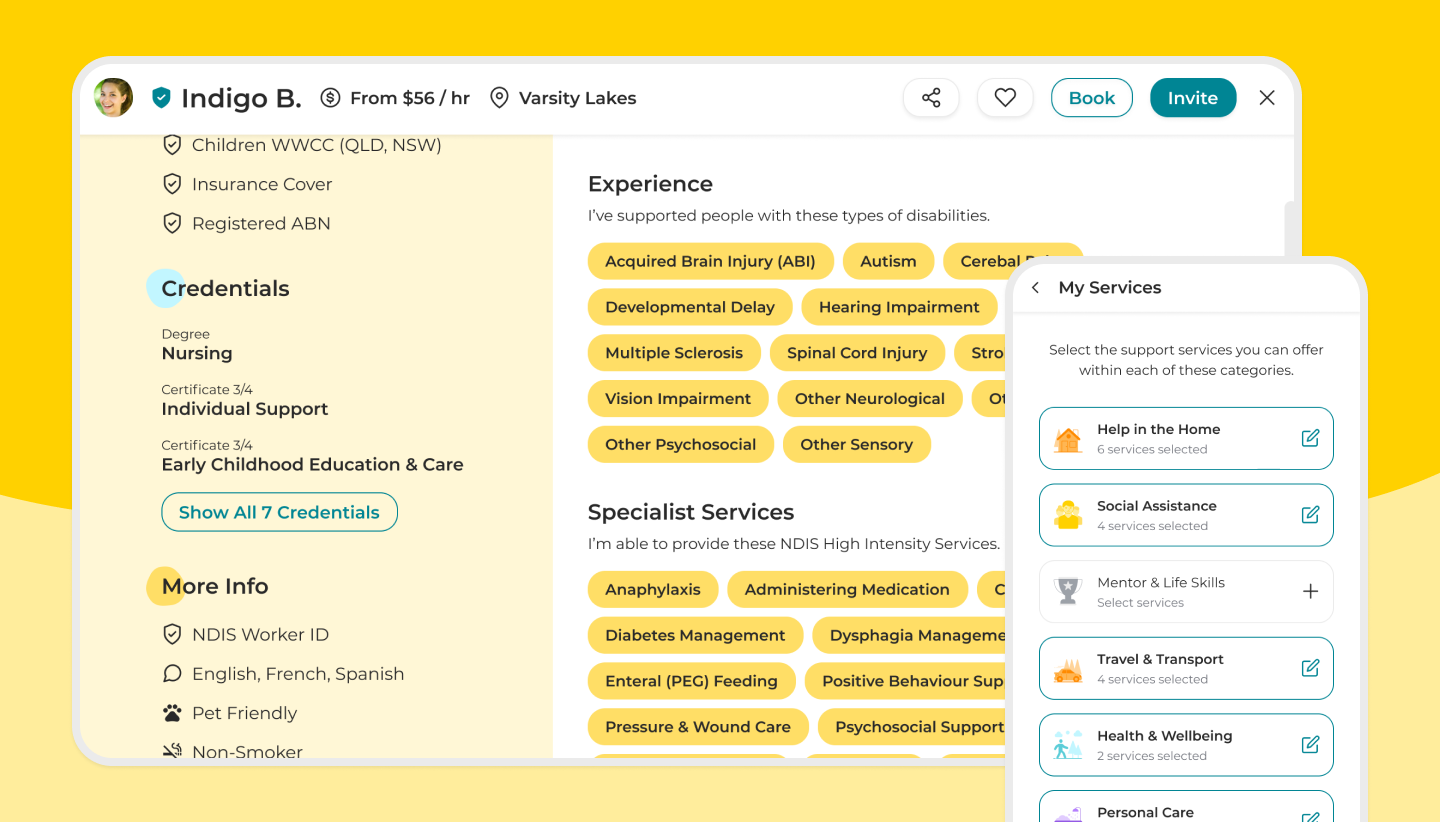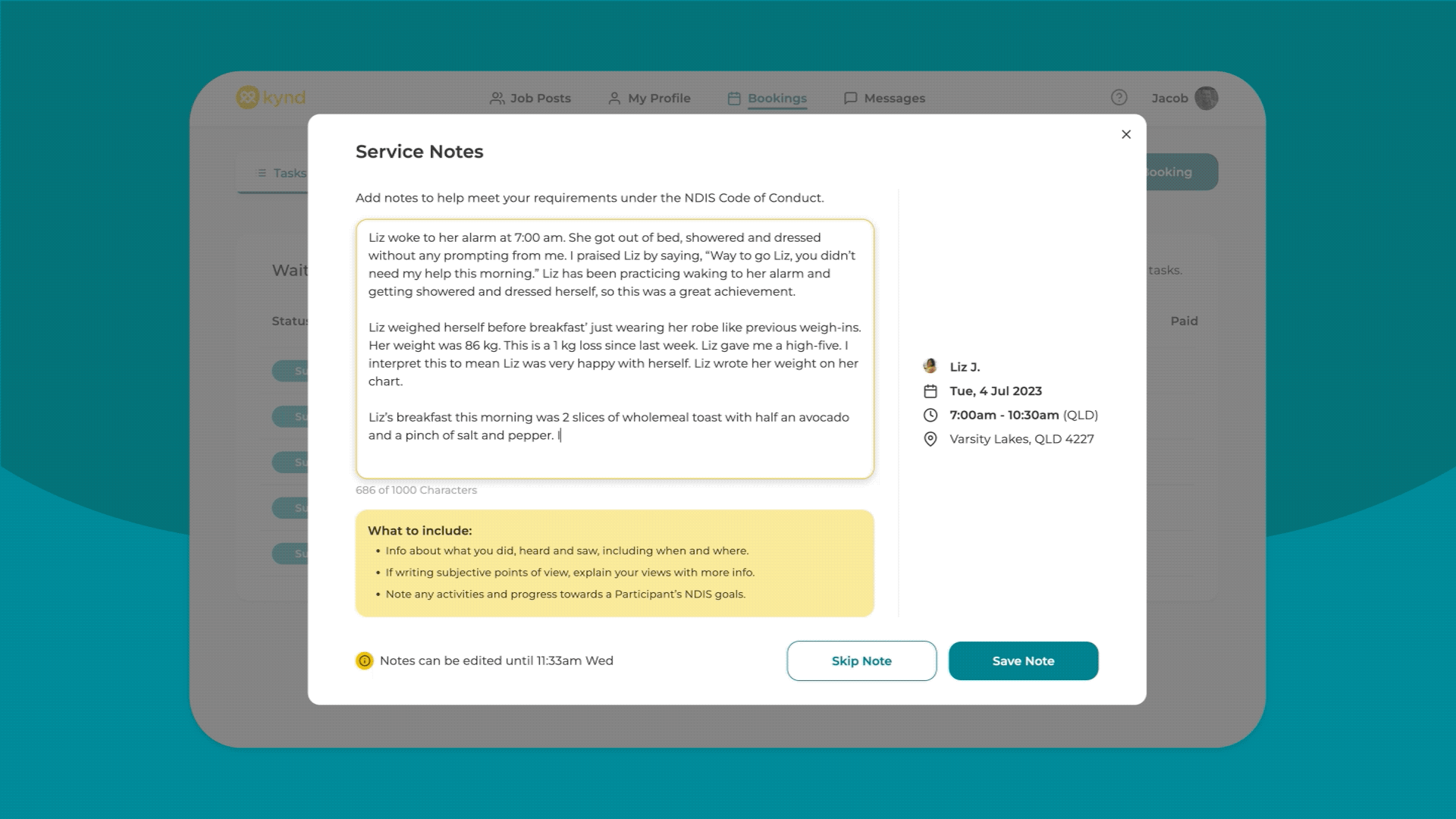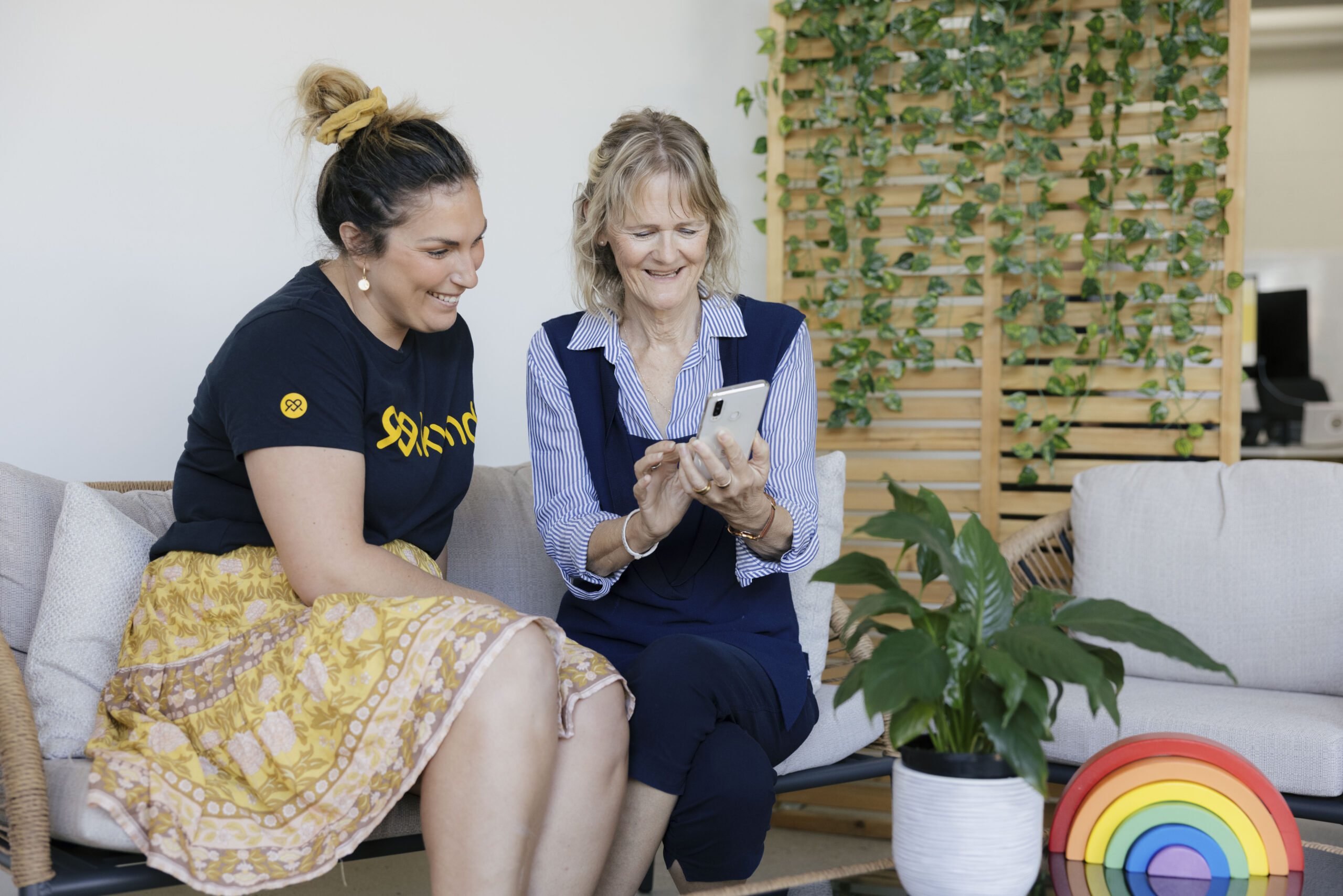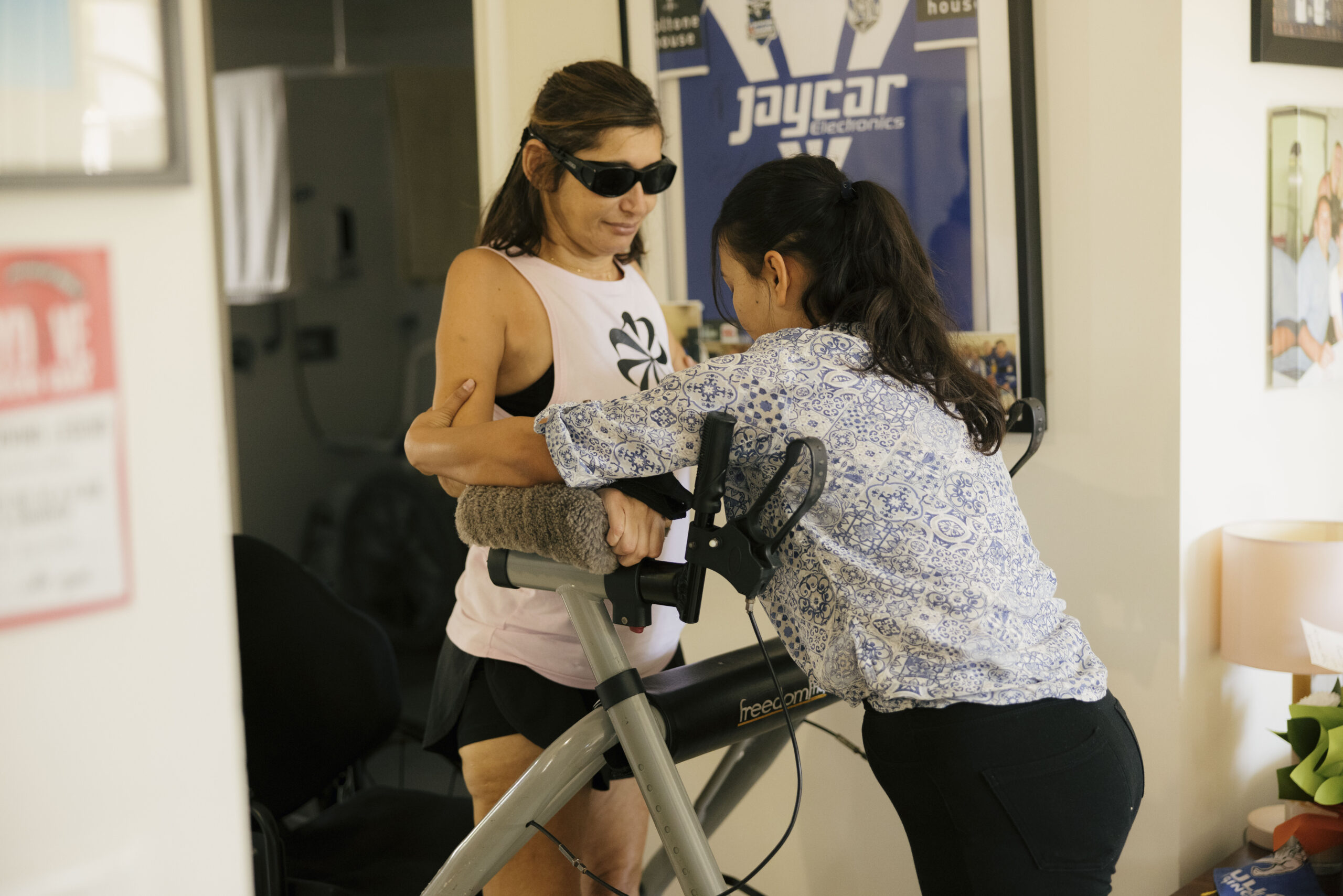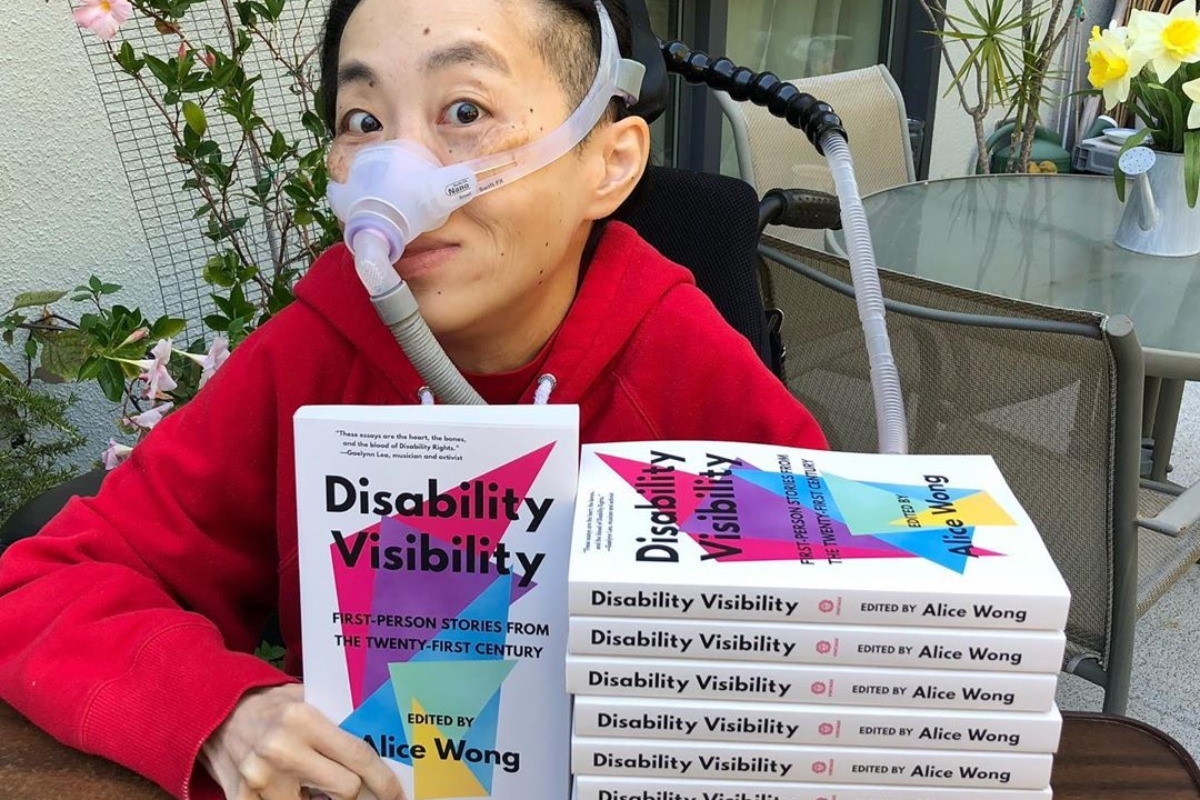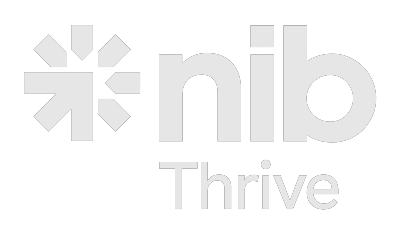There’s never been a better time to become an independent Support Worker.
It’s predicted that there will be a 15% increase in job growth for Support Workers in Australia over the next 5 years. Aside from being in hot demand, becoming a Support Worker offers a meaningful, challenging career that’s different every day.
Top all this off with the freedom to be self-employed and you are onto a winning situation. Meaningful, flexible work and more income —pretty good right?
In this article, we’ll discuss what it takes to become an independent Support Worker and who this might suit best. We’ll also cover the advantages and disadvantages of being self-employed or sticking with casual employment.
What Is An Independent Support Worker?
A Support Worker is a person who offers care and support to people living with a disability. The care offered may be physical, such as bathing or getting to the car, or emotional, such as talking through the complexities of making friends.
There are all types of disabilities. They can be physical, intellectual or psychosocial in nature, each requiring different types of support skills.
Doing this job independently means you find your own work and have the freedom and flexibility to craft your own hours and your own income, and pick the clients you work with. If you're using Kynd, you get a range of inclusions to help.
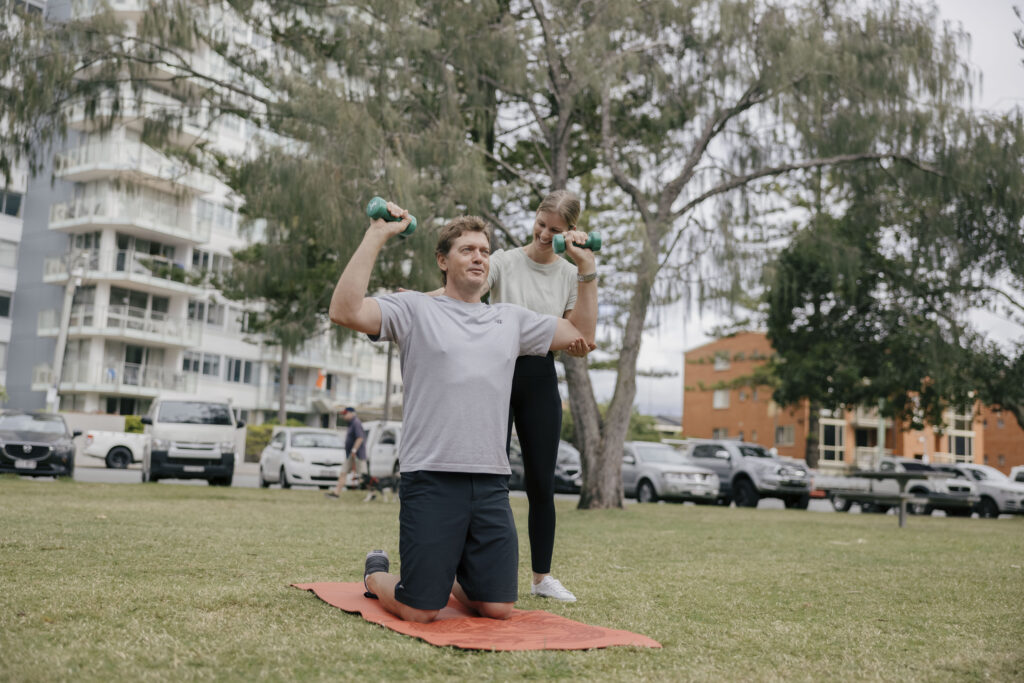
What Makes A Good Support Worker?
We asked Participants this question! Support Workers come in all shapes and sizes, but many of them share the following attributes:
- Emotional resilience
- Interest in getting to know people from all walks of life
- A friendly disposition and genuine interest in the well-being of others
- Patience and understanding in tough situations
- A kind and empathetic nature
Sound like a description of you? Perhaps being a disability Support Worker would bring you the satisfaction you're seeking and more freedom to be happy!
Traditional Employment vs Self-Employed Support Work
Support Workers can apply to be employed directly by an organisation or they can work independently as self-employed sole trader contractors. Like everything in life, there are pros and cons depending in your goals.
The right decision will probably boil down to your personality type.
Being a self-employed Support Worker is a great match for someone that likes the flexibility and freedom and would enjoy the power of building their own client list, income and schedule.
Advantages And Disadvantages
- Being A Self-Employed Support Worker
| ✅ Advantages | ❌ Disadvantages |
|---|---|
| Choose who you will support | You need to seek out your own work. Using a platform like Kynd can help. |
| The chance to meet people you are supporting prior to commencing | Managing your own tax and super. The good news is, it's actually quite easy! |
| Autonomy to choose the services that you are willing (or not willing) to offer | |
| The ability to set your own rates with the opportunity to earn more income | |
| Full control of your work hours | |
| You get to be your own boss; - decide when you have holidays - which days you'll be available - how much super you pay yourself |
Advantages And Disadvantages
- Being A Traditionally Employed Support Worker
| ✅ Advantages | ❌ Disadvantages |
|---|---|
| Allocated clients by your employer | Little freedom to choose clients |
| Potential for annual leave and sick pay | Set rates of pay you can't negotiate |
| Automated tax or super payments | Fixed contracts you can't negotiate |
| Rigid work hours | |
| Unable to choose your services | |
Do I Need Specific Credentials?
In most circumstances, you will need a Police Certificate and First Aid Certificate at a minimum. Additional qualifications are typically optional but they can help you build your profile and secure more specialised work.
The qualifications and requirements of becoming an independent Support Worker can depend upon who you are providing services to.
For example, some clients might seek out an independent Support Worker with a Working with Children Check (WWCC), or others might like a Diploma Of Counselling.
Some of the Support Worker qualifications that could help you stand out from the crowd in the independent disability support worker marketplace include:
- A Certificate III in Individual Support
- A Certificate IV in Disability
- A Bachelor of Education
- A Bachelor of Nursing
- A Diploma Of Counselling
- Working with Children Check (WWCC)
What Type Of Services Should I Offer?
There are so many ways you can help people living with a disability as an independent Support Worker. The services will largely depend on what the NDIS Participant is requesting and the type of disability they live with.
For example, someone living with an intellectual disability may have very different support requirements than someone who uses a wheelchair. As an independent Support Worker, you can have the flexibility to choose what services you do and don't offer.
Example - When using Kynd you may choose not to offer exercise and fitness assistance, or you might choose to focus only on social assistance.
Some of the services you may offer as an independent Support Worker include:
- Personal care, such as help with getting dressed or taking a shower
- Help in the home, such as cleaning up, washing or pruning the garden
- Social assistance, such as going to events or help to make friends
- Exercise and fitness, such as taking a walk or participating in a Yoga class
- Health and wellness goals, such as swimming at the beach or diet changes
- Meal preparation, such as grocery shopping or assisted feeding
- Therapy assistant, such as help with speech or partaking in physio programs
- Mentor and life skills such as help with studies or setting goals
- Travel and transport, such as assistance getting around from A to B
How Do I Set My Hourly Rate?
Choosing your hourly rate as an independent Support Worker can be a little bit daunting. You’re likely to start wondering what is actually fair, what you are worth and what your rates need to cover. Before long you might find yourself in a cloud of confusion, punching away at a calculator without any real sense of certainty.
The best place to start for some guidance is the NDIS Pricing Arrangements and Price Limits, which will at least give you some maximums so you know the top tier of Support Worker rates. These rates are the ceiling limit for some Participants.

From here, you can start considering your special skills, qualifications and offering.
For example, if you have a Certificate IV in Disability and you’re willing to offer more specialist services, you might decide to keep your rates towards the high end.
If you’re starting out with limited experience, no qualifications and there are only a handful of services you feel confident you can offer, a lower hourly rate might be more suitable.
Learn more on the Kynd Help Centre
Tip - If you’re using Kynd, you can chat with members directly and agree a rate that you both feel comfortable with. You may find different support requests, Participants and circumstances require a different fee approach.
Do I Need Insurance?
You bet you do! Being an independent Support Worker is a serious role in which you become responsible for supporting someone else’s well-being. You are likely to face challenging decisions, unavoidable risks and unexpected complications.
So insurance is a must.
Disability Support Worker insurance is part of the Kynd package, bundling up both Public Liability insurance and Personal Indemnity insurance for ABN sole traders.
It's also very important to beware of cheap insurance policies available online.
These often have many exclusions, including excluding common NDIS services.
The Importance Of Being Organised
As an independent Support Worker you will need to get yourself a good diary (inside your phone!) and a strong frame of mind. Before long you may find you have a busy schedule of support work and new 'Meet & Greets' to keep on top of. Good for you!
With time you are likely to build up a structure of regular clients and find your weeks have a more stable, predictable rhythm if that’s something you seek.
You will also need to keep good records of your spending, earnings and travels in preparation for tax time and paying super. But don’t fret, managing your tax and super is surprisingly simple and given the benefits of working independently, as a Disability Support Worker, it's definitely well worth any trouble.
Where Do I Find Work?
Although most careers still inspire traditional methods for finding work—such as using seek or relying on word of mouth—Support Workers are fortunate to have many avenues available on their work hunt.
Using an online platform like Kynd is an easy way to organise your services.
Kynd gives you the tools to find clients and manage your NDIS services with ease.
Learn more about becoming an independent Support Worker on Kynd here.
Checklist:
Become an Independent Support Worker
- Learn more and decide if NDIS support work is right for you
- Learn about running your own micro-business as a sole trader
- Consider undertaking more training and/or qualifications
- Learn how you can easily manage your taxes and super
- Get your ABN (Australian Business Number) - which is free!
- Create 2 separate bank accounts (a trading and tax account)
- Create an email account purely to organise your services
- Create your profile on Kynd (naturally). Build a great profile!
- Complete (or update) your First Aid Training and CPR certs
- Get a National Police Check completed and ready to show
- Get a Working With Children Check completed
- Complete your NDIS Worker Screening ID, so it's ready to go
- Learn ways to connect and market yourself to Participants
- Become a professional at conducting 'Meet and Greets'
- Offer amazing, personalised and wonderful NDIS services
Becoming an independent Support Worker can be a rewarding choice. Fill your soul, help other people live their lives, and improve your own cash flow versus employment. It's not for everyone, but if you take being an ABN Support Worker seriously, you'll stand out, build word of mouth and you'll have plenty of work.
And... you can start your profile on Kynd anytime!

